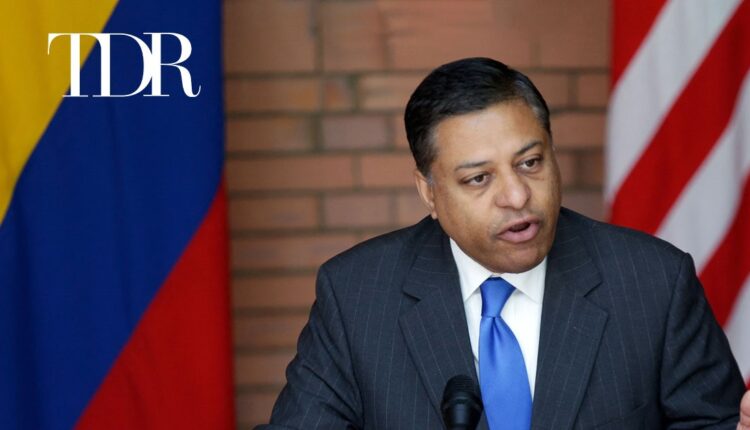
Rescheduling Cannabis: ONDCP Director Rahul Gupta’s Call for Change
- ONDCP Director Gupta criticizes outdated cannabis policies, advocating for rescheduling.
- Anthony Varrell anticipates cannabis rescheduling before the election.
- ONDCP’s push for Schedule III cannabis could advance medical research.
The White House Office of National Drug Control Policy (ONDCP) has intensified efforts to address the ongoing challenges related to cannabis rescheduling. The agency’s director, Rahul Gupta, criticized long-standing cannabis policies and emphasized the need for scientific scrutiny in the rescheduling process. These initiatives, Gupta argues, could potentially lead to significant benefits for public health and the criminal justice system.
The rescheduling of cannabis has been a contentious issue for decades. During an interview with the Mo News Podcast Raul Gupta said “We’ve had, when it comes to marijuana, failed policies for more than half a century, because of which way too many lives have been upended,”. His comments highlight the adverse impacts of these policies, which have led to widespread incarceration and social disruptions. The ONDCP is now advocating for a shift in approach, aiming to classify cannabis as a Schedule III substance.
Gupta underscored the importance of adhering to scientific evidence in this policy shift. “We’ve got to make sure that we are following science and analyzing substances for potential benefit, especially with the data that exists,” he said. Reclassifying cannabis to Schedule III could pave the way for developing new medications, which would then undergo rigorous approval processes by the Food and Drug Administration (FDA). This step could mark a significant turning point in how cannabis is perceived and utilized in the medical field.
The implications of rescheduling cannabis extend beyond medical research. It could also provide relief for individuals with chronic conditions. “It also will help people with chronic conditions like cancer or chronic pain or others as well,” Gupta noted. He pointed out the current “catch-22 situation” under Schedule I, which hampers research and the development of cannabis-based treatments. This rescheduling effort aims to break this cycle, offering new opportunities for therapeutic advances.
Rescheduling also carries substantial societal implications. Anthony Varrell, co-host of the “Trade to Black” podcast, believes that it could transform public perception of cannabis. “Rescheduling, I do think, catalyzes safe. I think rescheduling starts to get in people’s minds and actually opens them up to the legitimacy of cannabis,” Varrell said. He is optimistic about the prospects of this change occurring soon, adding, “I definitely think we get one. I think it’s for sure going to happen before the election.”
The momentum for rescheduling cannabis aligns with broader critiques of the so-called “failed policies” of cannabis prohibition. The ONDCP’s push for policy reform is not merely about changing legal classifications; it represents a broader shift towards evidence-based policymaking and a recognition of the therapeutic potentials of cannabis. This perspective is crucial as the U.S. grapples with balancing public health priorities and criminal justice reform. Want to be updated on all things Psychedelic, Cannabis, AI, and Crypto? Subscribe to our Daily Baked in Newsletter!



